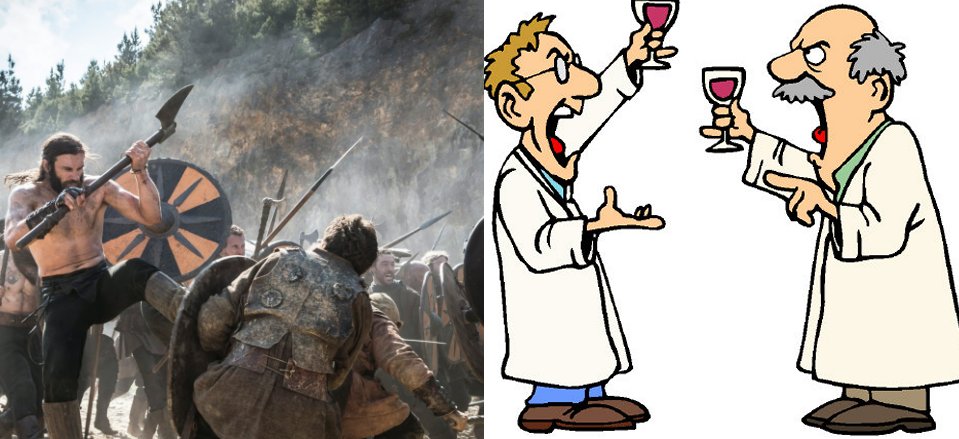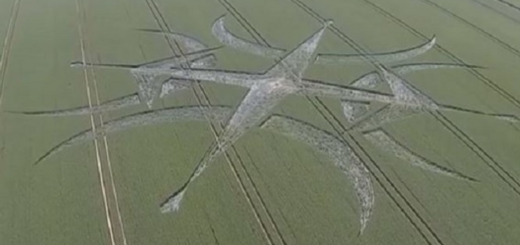Archaeologists And Historians Argue With Geneticists Over Controversial Viking DNA Study
Clash among scientists! There is currently a heated debate in the scientific community. Archaeologists maintain geneticists have totally misunderstood the Viking occupation in England.
Geneticists, on the other hand say that archaeologists feel threatened by a new form of historical data that they do not control. The debate has turned, more or less into an argument, and it’s certainly not the first time scientists disagree on certain subjects.

It all started with a large and controversial Viking DNA study that questioned several aspects of Vikings’ presence in England.
In 2015, a large DNA Viking study was conducted and it immediately sparked an intense debate. According to the study, there is “no clear genetic evidence” of the Danish Viking occupation of England.
“How can it be? Thousands of Vikings moved to England”, archaeologists said.
A new study has reignited the debate by claiming that somewhere between 20,000 and 35,000 Vikings relocated to England.
In the recent decades, DNA studies have helped scientists to unravel many ancient mysteries, but not all archaeologists and historians are thrilled over genetics experts have delivered an entirely new form of historical evidence.
It has helped to create a new interdisciplinarity, where we’ve started to get biologists and geneticists involved in archaeological research. It’s exciting because we’ve obtained masses of new data from it. But it’s essential that we work together to interpret and understand each other’s sources.
Explore The Mysterious Ancient World Of The VikingsIt’s not enough for DNA scientists to just read what appears in popular scientific history books. You need to understand the context and the details in order in order to get it right,” says Søren Sindbæk, archaeologist and professor with special responsibilities in the School of Culture and Society from Aarhus University, Denmark.
The new result is pretty much what Viking researcher Søren Sindbæk, a professor at the School of Culture and Society from Aarhus University, Denmark, had expected.
“It’s very interesting because it gives a very precise estimate of how many Vikings that moved to England. Both their analysis of the genetic material and archaeological remains indicate that the Danish Vikings had quite a significant influence,” says Sindbæk.
“It all fits together beautifully and I’m in total agreement with their critique of the original DNA study conclusions about the Vikings,” he says.
It is possible that DNA scientists do not always understand the historical context or overlook important historical details, says Professor Rasmus Nielsen from the Center for Theoretical Evolutionary Genomics at the University of California, Berkeley, USA.
However, according to Nielsen, the lack sufficient historical knowledge among genetic experts is not the cause of the argument. The argument is based on the feeling of being threatened, Nielsen explained.
Peter Donnelly, Professor and director of The Wellcome Trust Centre for Human Genetics at the University of Oxford has a calmer attitude and points out that DNA research can provide new information and a different view of history.
“Therefore, DNA studies contribute new pages to our written history, but it’s obviously very important that we work together with archaeologists and historians,” said Donnelly, who co-authored a large DNA study to map historical migrations to the UK using modern DNA—one being the Danish Viking invasions from the 9th to the 11th century.
It’s safe to assume this debate will go on for some time. It should be added that researchers have debated the number of Vikings in England for decades, only this time, now even DNA scientist are involved in the discussion.



 Creators of mankind
Creators of mankind Description of “Tall white aliens”
Description of “Tall white aliens” Where they came from?
Where they came from? About hostile civilizations
About hostile civilizations The war for the Earth
The war for the Earth “Tall white aliens” about eternal life
“Tall white aliens” about eternal life Video: “Nordic aliens”
Video: “Nordic aliens” Aliens
Aliens Alien encounters
Alien encounters The aliens base
The aliens base UFO
UFO Technology UFO
Technology UFO Underground civilization
Underground civilization Ancient alien artifacts
Ancient alien artifacts Military and UFO
Military and UFO Mysteries and hypotheses
Mysteries and hypotheses Scientific facts
Scientific facts


















